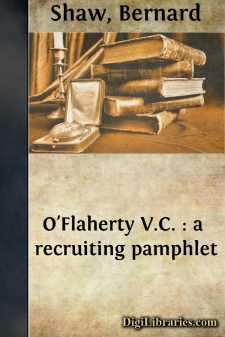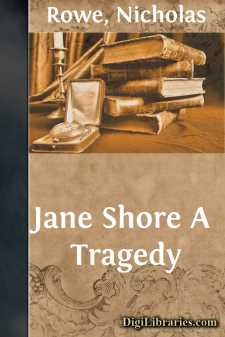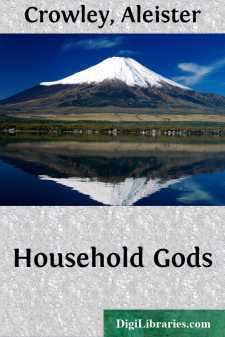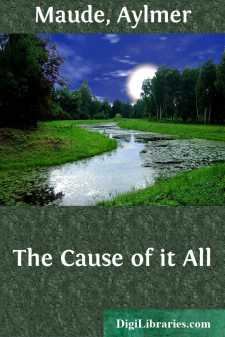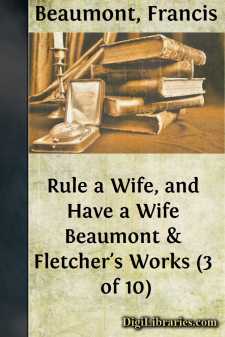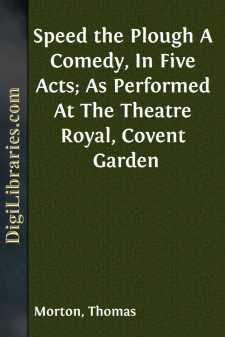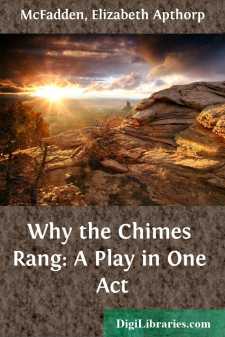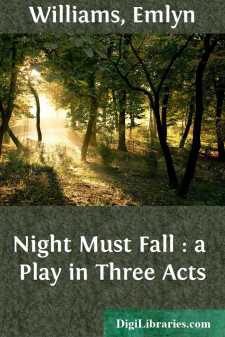Drama Books
Sort by:
by:
Bernard Shaw
It may surprise some people to learn that in 1915 this little play was a recruiting poster in disguise. The British officer seldom likes Irish soldiers; but he always tries to have a certain proportion of them in his battalion, because, partly from a want of common sense which leads them to value their lives less than Englishmen do [lives are really less worth living in a poor country], and partly...
more...
by:
Nicholas Rowe
ACT THE FIRST. SCENE I. THE TOWER. Enter the Duke of Gloster, Sir Richard Ratcliffe, and Catesby. Glos.Thus far success attends upon our councils,And each event has answer'd to my wish;The queen and all her upstart race are quell'd;Dorset is banish'd, and her brother Rivers,Ere this, lies shorter by the head at Pomfret.The nobles have, with joint concurrence, nam'd meProtector of...
more...
by:
Aleister Crowley
HOUSEHOLD GODS THE SCENE is at the hearth of CRASSUS, where is a little bronze altar dedicated to the Lares and Penates. A pale flame rises from the burning sandal-wood, on which CRASSUS throws benzoin and musk. He is standing in deep dejection. CRASSUS.Smoke without fire! No thrill of tongues licks up The offerings in the cup.Dead falls desire. Black smoke thou art, O altar-flame, that dost...
more...
by:
Aylmer Maude
ACT I Autumn. A peasant's hut, with a small room partitioned off. AkulÃna sits spinning; Martha the housewife is kneading bread; little Paráshka is rocking a cradle. MARTHA. Oh dear, my heart feels heavy! I know it means trouble; there's nothing to keep him there. It will again be like the other day, when he went to town to sell the firewood and drank nearly half of it. And he blames me...
more...
by:
Aristophanes
SCENE: A farmyard, two slaves busy beside a dungheap; afterwards, in Olympus. FIRST SERVANT Quick, quick, bring the dung-beetle his cake. SECOND SERVANT Coming, coming. FIRST SERVANT Give it to him, and may it kill him! SECOND SERVANT May he never eat a better. FIRST SERVANT Now give him this other one kneaded up with ass's dung. SECOND SERVANT There! I've done that too. FIRST SERVANT And...
more...
by:
Francis Beaumont
Actus PrimusScena PrimaEnter Juan de Castro, and Michael Perez. Michael PerezAre your Companies full, Colonel? Juan de CastroNo, not yet, Sir:Nor will not be this month yet, as I reckon;How rises your Command? Michael PerezWe pick up still, and as our monies hold out,We have men come, about that time I thinkWe shall be full too, many young Gallants go. Juan de CastroAnd unexperienced,The Wars are dainty...
more...
by:
Thomas Morton
This comedy excites that sensation, which is the best security for the success of a drama—curiosity. After the two first acts are over, and pleasantly over, with the excellent drawn characters of Ashfield and his wife, and the very just satire which arises from Sir Abel's propensity to modern improvements—the acts that follow excite deep interest and ardent expectation; both of which are so...
more...
Why the Chimes Rang. The scene is laid in a peasant's hut on the edge of a forest near a cathedral town. It is a dark low-raftered room lit only by the glowing wood fire in the great fireplace in the wall to the right, and by a faint moonlight that steals in through the little window high in the left wall. This window commands a view of the cathedral and of the road leading down into the town. The...
more...
by:
Emlyn Williams
ACT I The sitting-room of Forest Corner, MRS. BRAMSON'S _bungalow in a forest in Essex, A fine morning in October. Centre back, a small hall; in its left side the front door of the house (throughout the play, "left" and "right" refer to the audience's left and right). Thick plush curtains can be drawn across the entrance to the hall; they are open at the moment. Windows, one...
more...
by:
John Galsworthy
ACT I SCENE I The study of JOHN BUILDER in the provincial town of Breconridge.A panelled room wherein nothing is ever studied, except perhapsBUILDER'S face in the mirror over the fireplace. It is, however,comfortable, and has large leather chairs and a writing table in thecentre, on which is a typewriter, and many papers. At the back is alarge window with French outside shutters, overlooking the...
more...


